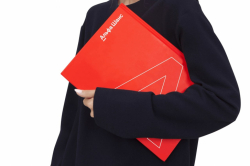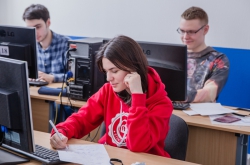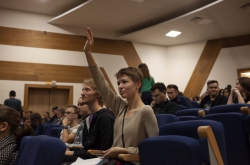Launched by ‘Sistema’, one of the biggest charity funds in Russia, the ‘Odyssey’ is a large-scale initiative aimed at pooling researchers’ efforts for developing novel search-and-rescue methods. Contestants have to come up with a technology able to find a missing person within the space of ten hours and 10km radius regardless of light and weather conditions and with no mobile communications involved (it is envisaged that a rescuee doesn’t have a mobile phone at hand). Engineering teams, tech companies, nonprofits, universities, and research centers staff, technology specialists and enthusiasts, as well as everyone ready to think of out-of-the-box solutions are invited to take part in the project. Possible solutions include infrared spectrum detectors, transmission technologies, local communication devices, geological information and control and navigation systems, mapping techniques, artificial intelligence, as well as all forms of remotely piloted patrols or any other devices the inventors would want to put forward.
“We’re not a tech colossus or a huge Internet company. Under the auspices of the JFC ‘Sistema’, we’ve been involved in the field of charitable work for the past 14 years, trying to find answers to the most topical societal issues. Each year, we work with different stories, from helping museums to providing medical treatments and assisting people in need. Some problems require a systematic approach: we need to develop accessible, once-and-for-all solutions that would draw on the field of technologies. That’s why we invite all members of the Russian tech community, students included, to bring their unique ideas to the table. This is the gist of our initiative,” explained the ‘Sistema’ charity fund president Anna Yanchevskaya.

The ‘Odyssey’ was created after Google Lunar X Prize, a US-based initiative aimed at young scientists and engineers. Led by Google and X Prize, an independent fund advocating for innovations, the project offered participants to develop a viable lunar rover in a chance to be awarded 20 million dollars. The winning rover should be able to perform a successful Moon landing and ride a distance of no less than 500 meters, taking high-resolution photos and videos of its surroundings and sending the footage back to Earth. There’s no right or wrong approach to solving both of the projects’ problems, participants are free to submit any solution they like to the jury's consideration, with the impressive prize fund serving as their motivation. While Google Lunar X Prize lies within the realm of technical breakthroughs which, if implemented, can lead to significant societal changes, the ‘Odyssey’ project deals with topical issues which are a challenge to modern society.
The project’s organizers chose forest as the first contest’s theme as this environment poses the most problems to rescue teams and has the largest potential in terms of non-conventional technological solutions. The competition hosts are ready to offer participants to test their inventions on-site at a real woodland area.

All solutions have to be technology-based; concepts and people-led search methods will not be considered as the main objective here is to speed up the search operation and decrease the number of volunteers involved. It is preferable for a solution to be portable, for example, in the form of a modular unit which could be transported in a helicopter or as part of hand luggage in airplanes. What is also important is how simple it is to use.
Apart from the chance of saving thousands of people and seeing their invention implemented at a large scale, participants are in for an impressively large money prize. The project’s prize pool measures 75 million roubles and is divided into two parts: 30 million is grant funding that is offered to jury-approved contestants in the semi-final to help them perfect their creations, while the remaining 45 million is an unconditional prize shared between three contest winners. There may be one winner who takes all of this sum, but the organizers would like to have three different solutions crowned in the end.

Contestants will work in teams comprised of no more than six people aged over 18 years old. Engineers, programmers, developers, entrepreneurs, scientists, students and PhD researchers are invited to take part. Each team should include at least one tech specialist to qualify. There will also be a special contest track for solo participants. If a contestant doesn’t have a team or a full-fledged solution to offer but still wants to take part, they can be accepted to the solo track by explaining to the jury the value of their ideas. Teams can take on solo participants should they find them suitable; likewise, solo contestants can unite in separate teams. The developed solution rests in a team’s property until it decides to pass it onto a major stakeholder such as the state or big companies offering to perfect and implement the invention.
The applications are received until October 31 and should include a detailed description of the solution’s concept and video recording pitching the team and its idea. The applications can be submitted on the project’s website. After November 1 teams will be given access to related research containing patent analytics on available inventions and search methods and the ‘Liza Alert’ search-and-rescue team’s extensive records. Contestants can also partake in the actual search operations to gain a better understanding of the difficulties rescuers encounter working in a woodland area. Apart from that, the contest participants will get a chance to learn more about the latest search-and-rescue technologies and meet leading experts in the sphere. The next stage will see participants prepare the project documentation and a description of their solution. In summer 2019, they will get an exciting opportunity to test their ideas in real forest conditions; helped by an expert team of engineers and practiced rescuers, participants will use their creations in an attempt to find a missing person. If successful, they will be included in the draw for the 30 million grant. The contest final will include even more realistic conditions.

As part of the competition, several Russian cities will host various public events, for example, open lectures by leading experts on the state of the Russian search-and-rescue technologies market, as well as the latest developments in the field. Participants will get a chance to discuss the best technologies available and learn how they can help tackle social problems. These lectures also are a good opportunity to get feedback from experts.




